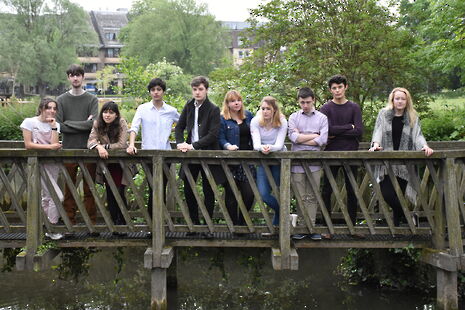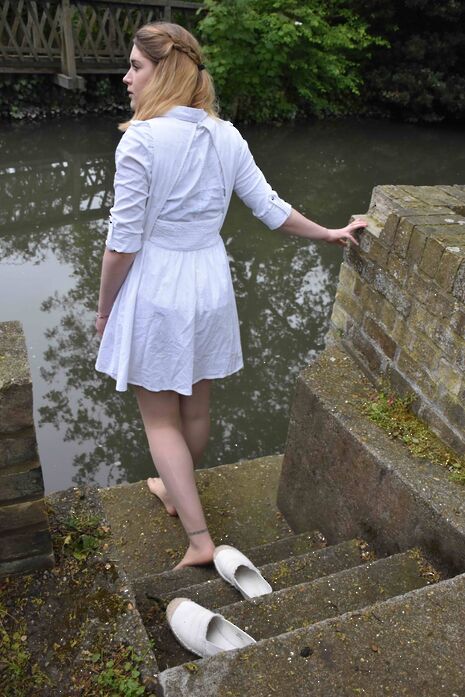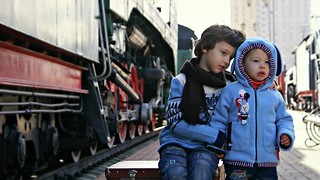Hamlet – Edinburgh Fringe Preview
This enthusiastic cast seem determined and unfased by this daunting play – even sticking with its original verse form

In the year of the 400th anniversary of Shakespeare’s death, the Cambridge University Shakespeare Players are taking Hamlet to the Edinburgh Fringe. Even more excitingly, going on the cast and crew’s research thus far, it seems to be the only production of Hamlet that is selling the play in its own right, in the original verse. The team is currently fundraising for the run, which will take place during the week of the 22nd- 27th August, in TheSpace @ Niddry Street – if any readers’ appetites are whet then do donate and/or come and see the show in Elsinore Edinburgh! This might appear a rather cheeky bit of self-promotion on the part of the author, who, surprise surprise, is in the cast, but at least the article doesn’t go as far as including a link to the Go Fund Me page, or plugging the various social media accounts… After all, this is written by a thesp, argal some amount of advertising was to be expected.
On the theme of drama, Hamlet (Joe Sefton in this production) continues to be a page eighteen words Laura Pujos photographs Oscar Yang Hamlet —Edinburgh Fringe Preview Hamlet is surely one of the most daunting plays to approach, not least for performance at the Edinburgh Fringe. But this enthusiastic cast seem determined and unfased by such a prospect–even sticking with its original verse form fascinating character for actors to approach, providing many opportunities to play around with the very idea of performance. Hamlet’s ‘antic disposition’ is one of the most critically baffling and dramatically challenging aspects of the play, which centuries of actors and several actresses have taken on. The challenge for Sefton will be to assume this role (one of the most theatrically distinguished in English stage history, seen as the pinnacle of many great actor’s careers) and breathe new life into it. It is no easy feat for a university student, but this aspect of youth is also something co- directors Gaia Fay Lambert and Myles O’Gorman are capitalising on, bringing Hamlet’s age down to the late teens: more in line with what we recognise of as a university student nowadays.
To further expand on the co-directors’ vision for the piece, the production will be quite a minimalist, naturalistic retelling of Hamlet, focusing on the core drama of the piece. This will be interesting in the setting of the Fringe festival, in particular, as a locus mainly of stand-up and sketch shows, with even the occasional comedy retelling of Hamlet - a quirky idea Gaia and Myles assure me they were not tempted by.
The 80-minute time slot would normally pose a challenge that might put people off doing Hamlet - a mammoth play of typically at least three hours - but Myles was undaunted. Heightening the domesticity of the play by removing much of the explicitly political subplot of Fortinbras’ rebellion really hones the family focus. This element of the play has a greater modern relevance: estranged parents, adolescent anxiety, depression, and, Myles also claims, ‘friendly banter’; it’s the Jacobean answer to the soap opera.

In all seriousness, though, the mention of anxiety and depression raise the important question of the portrayal of mental health in Hamlet, a lens that Gaia and Myles were keen to use, having been immediately struck by the raw pain of the play. Hamlet’s madness is perhaps more illness than anything else, and certainly with Ophelia there is a tendency to portray a pervasive and damaging stereotype of flitty, zany, and, well, “crazy” madness, which both directors are keen to avoid and rethink. In the inevitable process of cutting that was necessary to get the show to its 80-minute duration, many of the characters around Ophelia’s lines have been cut, allowing for a closer focus on the tragedy of Ophelia (to be played by Laura Pujos), and not just of Hamlet, despite her proportionally small role in terms of lines in Shakespeare’s unabridged play. The madness of Hamlet surely works best when playing against expectation; it is all the more affective and troubling when suffering becomes so deep-seated that it seems normal.
The production really invests in the idea of the chorus, too, as a disembodied choir of voices who surround Hamlet during key moments in the play. The cutting up and interlocking of scenes is also an innovative move by Gaia and Myles, which they hope will aid the exploration of mental health in the production, creating a sense of personal oppression and suggesting nuanced distinctions between ‘put on’ madness and real madness as Hamlet struggles with his role in external society.
A tricky character to grapple with is also King Claudius; actor Seth Kruger thinks him an interesting type of “villain”, because, as in the case of Mark Anthony, we access the character mostly through hearsay. In Hamlet’s mind, and in the Murder of Gonzago play, he is a Richard III-type machiavel, but in the play proper we see a more weary and guilt-ridden man. While Hamlet is plagued by doubt and indecision, Claudius can pose a refreshing alternative: a decisive character, he acts first and asks questions later - but the questions he asks himself shake him to the core. Importantly, this a group piece; it is worth considering that in away, each of the characters experiences their own tragedy. Rehearsals are already well underway for this ambitious project, and it’s shaping up to be a very exciting piece, not to be missed; buzz buzz!
 News / Cambridge climbs to third in world Uni rankings11 October 2025
News / Cambridge climbs to third in world Uni rankings11 October 2025 Features / How to spend a Cambridge summer12 October 2025
Features / How to spend a Cambridge summer12 October 2025 Comment / Bonnie Blue is the enemy, not the face, of female liberation13 October 2025
Comment / Bonnie Blue is the enemy, not the face, of female liberation13 October 2025 News / Join Varsity this Michaelmas13 October 2025
News / Join Varsity this Michaelmas13 October 2025 News / Tompkins Table 2025: Trinity widens gap on Christ’s19 August 2025
News / Tompkins Table 2025: Trinity widens gap on Christ’s19 August 2025









